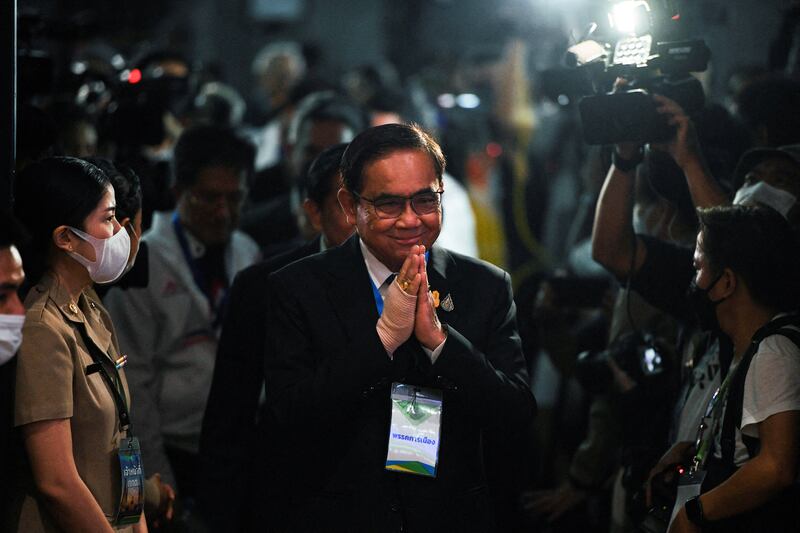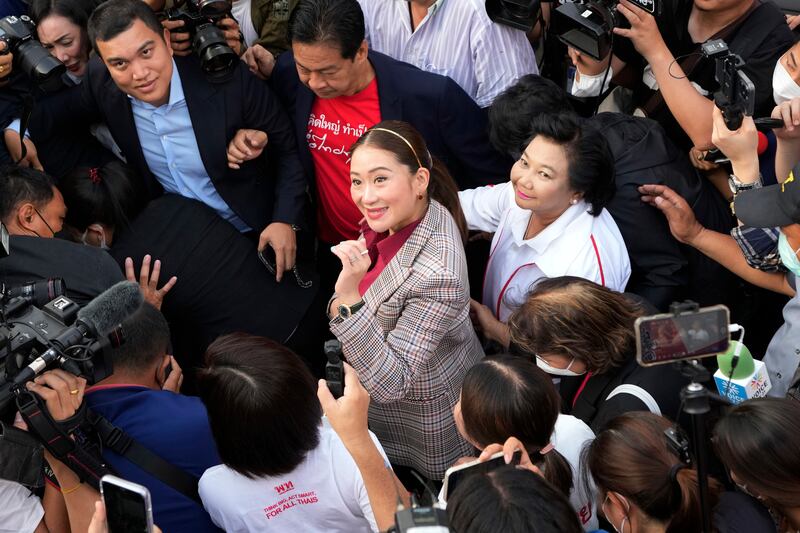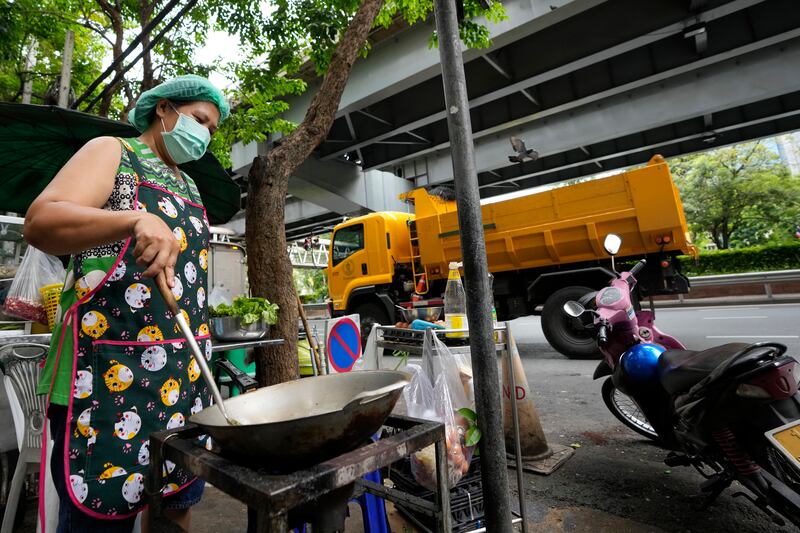Updated at 10:00 a.m. ET on 2023-04-20
As Thais go to the polls on May 14, here are five things to keep an eye on:
1 - The Shinawatras versus the generals
The 2023 election is shaping up to be mainly a contest between the political dynasty of the Shinawatras, and the military, which twice toppled governments headed by the family’s members.
In this year’s election, however, the military is no longer a monolithic bloc. There now exists a political split in the military.
Prayuth Chan-o-cha, the prime minister and former junta chief, quit the ruling Palang Pracharath Party to form a new party, the United Thai Nation Party, which is competing against PPP in the 2023 polls. Prayuth's deputy and fellow retired Army general, Prawit Wongsuwan, is vying against him as a candidate for prime minister.

On the side of the Shinawatra dynasty is Paetongtarn “Ung Ing” Shinawatra, 36, a leader of the Pheu Thai Party who is the frontrunner among prime ministerial hopefuls.
Paetongtarn is a daughter of Thaksin Shinawatra, a former PM who himself was deposed by the armed forces in a 2006 coup. She is also a niece of Yingluck Shinawatra, whose government was overthrown in a military coup spearheaded by Prayuth nearly a decade ago.
Paetongtarn has consistently bested Prayuth in pre-poll surveys. Her party says it is committed to steering Thailand back on a democratic path.
2 - No clear outcome
Pheu Thai is expected to capture the largest number of parliamentary seats – but not a majority – in the May 14 polls, like it did in the last election in 2019.
At that time, under electoral rules created via a military-backed constitution adopted in 2017, the runner-up Palang Pracharath Party trumped any possibility of Pheu Thai forming a ruling coalition.
According to various opinion polls, Pheu Thai could win half of the lower house’s 500 seats, but it would need at least 376 seats to secure a parliamentary majority when both houses elect the new head of government from the list of the PM candidates.

Yet, because of an unclear result expected this time around, the two main rival parties in the electoral race, Pheu Thai and PPP under Gen. Prawit, could join forces to establish a ruling bloc, according to analysts. Prawit has expressed his willingness to lead such a coalition.
His comments, however, drew a barbed response from Thaksin, a businessman and magnate in the telecommunications industry who lives in exile in Dubai.
“Who would be that dumb to give him the premiership?” Thaksin said during a recent online forum, referring to Prawit.
3 - The possible dissolution of Pheu Thai
Such comments by the patriarch of the Shinawatra family may backfire and do his daughter’s party a disservice, according to observers, because Thai authorities could take steps to dissolve Pheu Thai after the election. Thaksin is banned from participating in Thai politics.
Pheu Thai may be found guilty of violating campaigning rules and could be dissolved – as happened to two other parties founded by Thaksin, observers said.
Last December, plaintiffs lodged petitions with the Election Commission to investigate Thaksin for online comments he made about Pheu Thai’s campaign promise to hike the minimum daily wage.
After an election is held, the Election Commission can conduct investigations into so-called “irregularities” during the campaign season.
A similar investigation led to the disbanding of popular opposition Future Forward Party after the 2019 polls.
4 - What the voters want
Thai voters care deeply about two issues in particular: ending entrenched corruption and reviving the COVID-19-battered economy.
Although big-spending tourists from China and other countries have started to return in droves, Thais are still reeling from inflation.
Voters have also said they want to see improvements in the public health and education sectors.

“I’m a poor person, we don’t beg for lofty things. We want the rubber price to increase to 3 dollars per kilogram,” Ar-ae-so Bedaebulae, 48, a rubber farmer in Narathiwat province, told BenarNews.
In Bangkok, a local resident said corruption caused economic hardship for people.
“I think corruption currently occurs more than before,” said Pornpirun, who asked BenarNews not to use her full name for privacy reasons.
5 - The end for Prayuth?
Observers predict that this election could be the last stand for 69-year-old Prayuth, whose grip on power has weakened since the 2014 coup.
Although he has survived several confidence votes in parliament, the May 14 election may mark his end as prime minister, analysts said. Even if he does become PM again, constitutional term limits would require him to leave office in 2025.
In the post-election horse trading that determines which parties will form coalitions, Prayuth could find himself left out from a ruling bloc, one analyst told BenarNews.
In the most likely scenario, “Pheu Thai will not have enough seats to form a government … That means there will be a switch in the allies to Palang Pracharath,” said Nuttakorn Vititanon, a political scientist at Chiang Mai University.
The identity of the next prime minister won’t be known until weeks or months after the vote, as Thailand’s electoral system allows up to 60 days for the release of official results, and parliament convenes two weeks later to vote for the nation’s leader.
